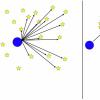Nice to see them finally coming around to this. Most oncology related reserachers are too busy investigating money making compounds it seems. Note the part bolded by me.
Quote
Plant and food chemicals may help treat cancers November 18, 2015
Combinations of a significant number of non-toxic chemicals, many of which can be found in plants and foods, may help treat advanced and untreatable cancers, according to new research from a global task force.
The task force of 180 scientists from around the world includes University of Auckland Professor of Cancer Nutrition Dr Lynn Ferguson who says the research also suggests that non-toxic doses of plant and food chemicals may address the problem of cancer relapse. Professor Ferguson also led one of the individual working teams, focussing on genomic instability.
The research paper synthesis was published today (18 November), along with the supporting work from each of the teams, in a special issue of Elsevier's Seminars in Cancer Biology. In light of this evidence, the task force is calling for an immediate increase in support for research on mixtures of chemicals that can reach a broad-spectrum of therapeutic targets.
"While current therapies have achieved modest successes in some cancers, significant problems remain with most of our approaches to treatment," says Dr Ferguson. "In particular, many newer targeted therapies are extremely expensive, highly toxic and not effective for rare types of cancer and advanced cancers."
"Even when they appear to work, a significant percentage of patients will experience a relapse after only a few months," she says. "Typically advanced cancers are untreatable and relapses occur when small sub-populations of mutated cells become resistant to therapy. Doctors who try to address this problem with combinations of therapies find that therapeutic toxicity typically limits their ability to stop many cancers."
To tackle this problem, the task force of 180 scientists from prominent institutions in 22 countries was assembled by a Canadian NGO called "Getting to Know Cancer".
Interdisciplinary teams were formed and they nominated a series of high-priority molecular targets (74 in total) that could be reached with chemicals to improve patient outcomes.
Corresponding low-toxicity chemical approaches were then recommended as potential candidates for a mixture of chemicals that could reach a broad-spectrum of priority targets in most cancer types.
"While some chemicals, such as metformin and dichloroacetate, are older drugs that have potential due to their low toxicity, many of the chemicals that were selected, such as resveratrol in grapes, genistein in soy, curcumin and others, can be extracted from plants and foods," says a scientist from Illinois Dr Keith Block, the Medical and Scientific Director of the Block Centre for Integrative Cancer Treatment.
"Although most have been studied for individual anti-cancer effects, there has been almost no research done on substantial combinations of these chemicals," he says. "This was the first time that teams of researchers with such a wide range of expertise have ever been assembled to address the complex problem of relapse."
"The task force teams have emerged believing that carefully designed combinations of non-toxic chemicals can be developed that will maximize our chances of arresting most cancers", says Dr Block who is the lead author of this group.
There are still many unanswered questions so animal trials are now needed to advance this approach before human trials are possible.
"But this is an area that merits considerable attention," says Dr Dean Felsher, a project contributor from the Department of Medicine at Stanford University. "Our approaches to therapy are improving, but we need a breakthrough that can help us address the problem of relapse, and this is a new, paradigm-changing approach that might just give us a chance."
The taskforce also wanted to produce an approach to therapy that would have the potential to be very low cost, because many of the latest cancer therapies are deemed unaffordable in low-to-middle income countries.
Accordingly, the task force has laid the groundwork for a solution that should be both inexpensive and effective in making this novel approach available to people who are suffering from cancer throughout the world.
Explore further: Global taskforce calls for research into how everyday chemicals in our environment cause cancer
More information: Keith I. Block et al. Designing a broad-spectrum integrative approach for cancer prevention and treatment, Seminars in Cancer Biology (2015). DOI: 10.1016/j.semcancer.2015.09.007
Provided by: University of Auckland
http://medicalxpress...ls-cancers.html
Edited by Cosmicalstorm, 20 November 2015 - 12:02 PM.














































